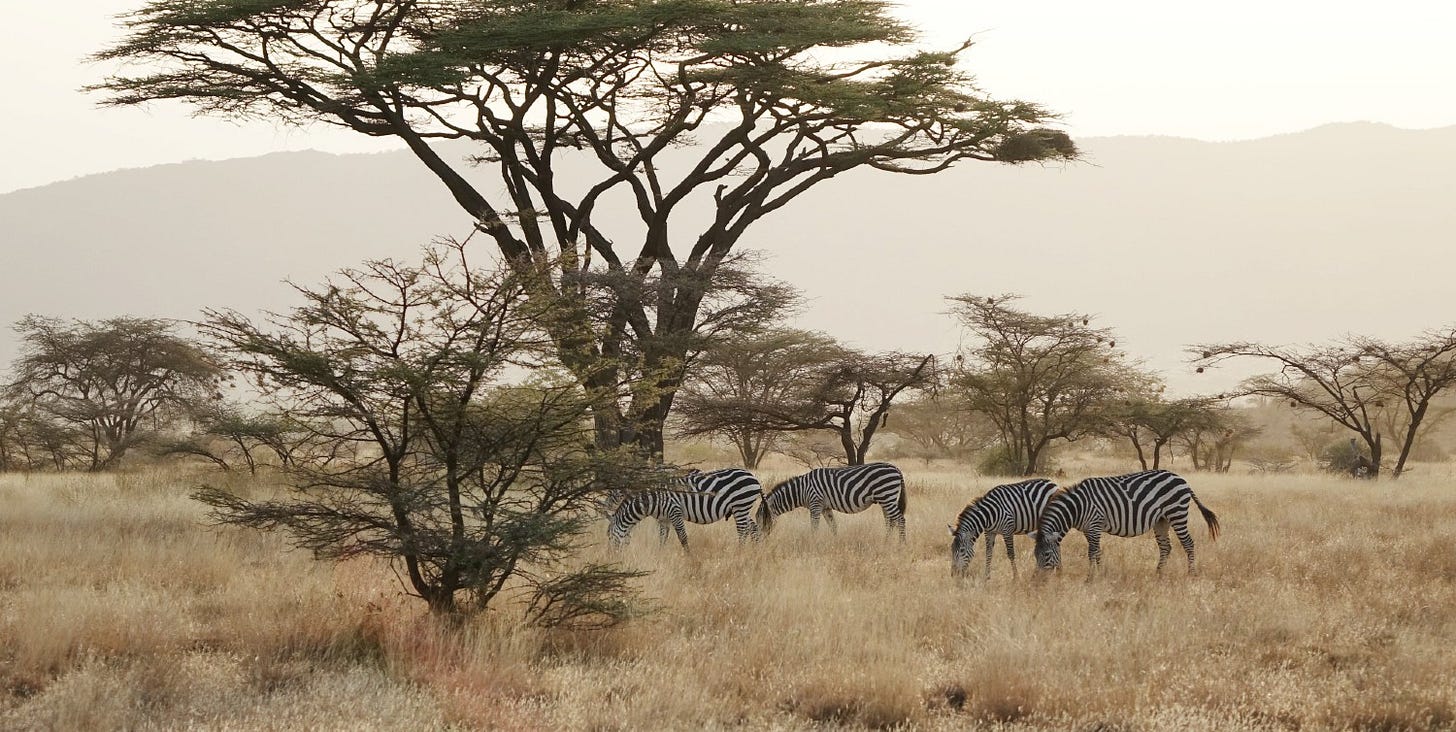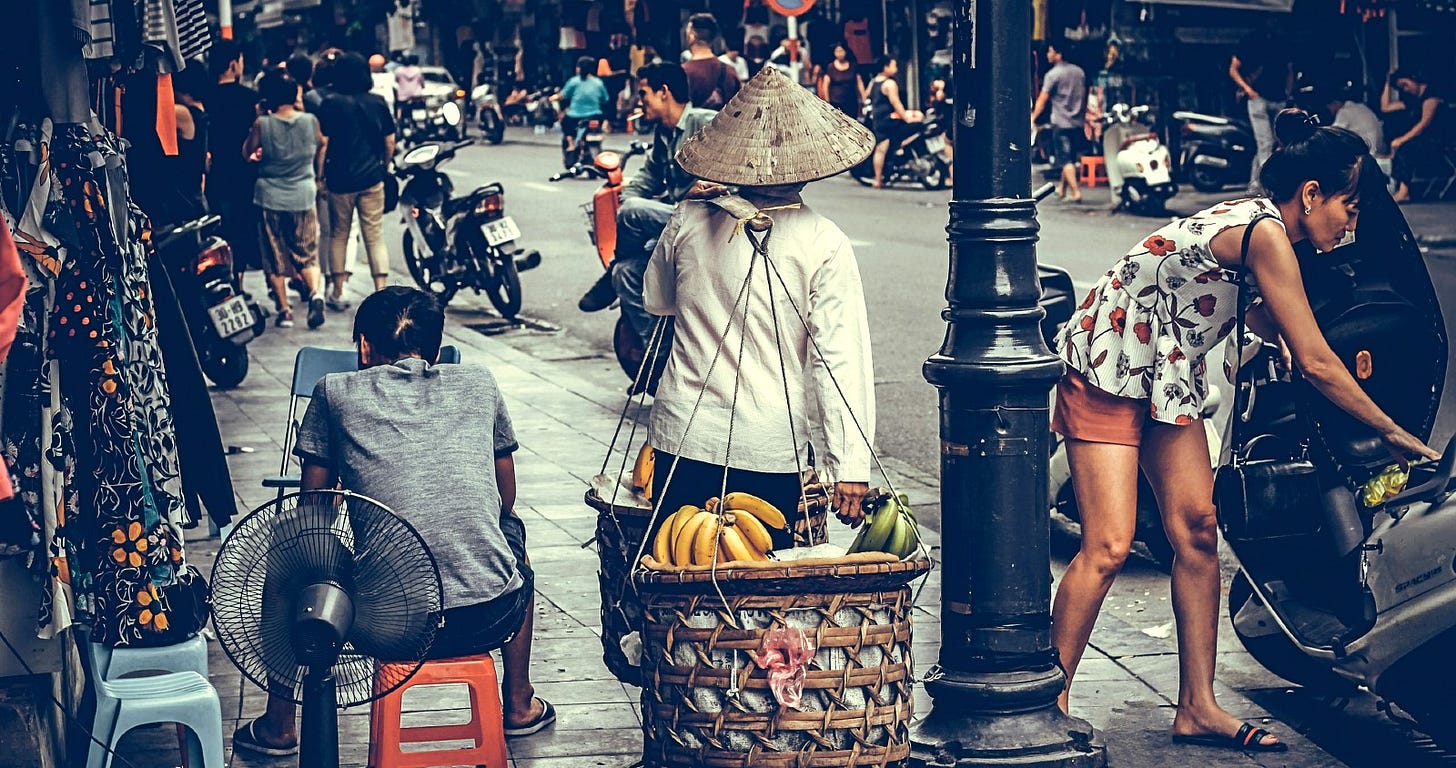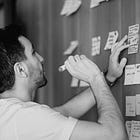Rewiring Present Bias from the Savanna Brain
How Our Ancestors Shape Modern Environmental Decisions
Suppose I could see the future consequences of my actions as vividly as I experience the present moment. How would that change my decisions about the environment, my health, or my finances?
Unfortunately, I can’t, at least not easily, because my brain isn't wired for such foresight.
Like you, I still have a 'savanna brain', prioritising immediate rewards over long-term benefits. This was an essential survival tactic before agriculture, when the next meal was unpredictable. And this cognitive quirk, known as present bias, isn't just a personal challenge—it's shaping the future of our planet.
In this issue of Mindful Sceptic, I’ll unravel the evolutionary roots of our shortsightedness and reveal how it impacts everything from daily choices to global climate action.
Let’s start by travelling back some 70,000 years to the savannas of Africa, just before modern humans decided to spread out and colonise the planet.
Present bias means daydreamers die of thirst
Imagine for a moment that you are in the mind and physically fit body of your ancestor, who lived somewhere on the African savanna 70,000 years ago.
The place where you live looks something like this…
What's on your mind?
You are thinking about finding food, avoiding becoming food and getting to the nearest fresh water at the base of the hill in the distance before dark. To survive this life you must prioritise the basics.
There is no chance of spearing any of the healthy zebra out in the open, but there is a good chance that a lion or six lies in the dry grass between you and the water.
Your brain is working overtime at the signs, sounds and smells of the savanna, to survive and glean what you can from the daylight hours.
You will think about your fellows, the tribe, or the extended family you rely on to help with all the vigilance and foraging. Some thoughts of communication, perhaps even some empathy, allow you to act on keeping the bonds of cooperation tight.
Paying attention to the present is a matter of life and death. You don’t have the time or energy to think much about the future.
Daydreamers die of thirst.
The present is more important than the future.
Fast-forward to today, and your brain retains many of the adaptations evolved to survive without modern technology on the savanna.
Modern humans worry about the present disproportionately more than the future due to a cognitive phenomenon known as present bias—the tendency to prioritise immediate rewards over future benefits, even when waiting might lead to a better outcome. It happens all the time.
I will lie on the couch eating ice cream (benefit now) rather than rolling out the yoga mat and completing 30 minutes of yin (benefit for life).
At its core, present bias reflects our difficulty in accurately weighing the value of future outcomes against current desires or needs. I might choose to watch another episode of Gogglebox instead of going to bed early, despite knowing I have an important breakfast meeting tomorrow in the city. It's also why I find it so hard to resist sugary snacks now, even though I’m trying to improve my diet for better health in the long run.
Present bias extends beyond personal choices and contributes to our collective struggle to take significant action. The immediate costs of reducing carbon emissions or changing lifestyle habits often feel more tangible and burdensome than the abstract future benefits of a stable climate. Similarly, most of us undersave for retirement, prioritising current spending over future security.
It might also explain why resources and energy are used as though they were infinite, perhaps even why ‘growth’ is such a pervasive paradigm.
Several factors contribute to present bias
As we already saw, the present can be linked to the survival needs of our ancestors. Immediate rewards were often directly tied to survival, such as finding food or shelter, whereas long-term planning was less critical in an environment where life was uncertain and future rewards were not guaranteed. We are probably hardwired to focus on the present.
Research in behavioural economics established that the perceived value of a reward decreases as the delay to its receipt increases, a human trait known as hyperbolic discounting. People are more likely to choose a smaller reward now over a larger reward later because the immediate reward is more tempting. Also handy on the savanna where there was no guarantee the tribe would snag a zebra anytime soon but the marula fruits were right there for the picking.
Some cultures emphasise the importance of the present moment, while others may focus more on future planning or the legacy of the past—mindfulness is a good one!
For example, Buddhist traditions, particularly in Theravada and Zen Buddhism, strongly emphasise mindfulness and the present moment. Native American cultures, the widespread practice of yoga in India, the Japanese practice of Shinrin-Yoku, the Native Hawaiian practice of Noho Pū, and even the Western philosophical schools like Stoicism and Epicureanism all have versions and practices of living in the present moment for achieving a good life. You could say that it is easier to go with your innate present bias than to fight it.
People may also be naive about their future preferences and behaviours, underestimating the extent of their present bias. This naivete can lead to a misprediction of future self-control, reinforcing the tendency to prioritise the present. In short, we don’t know what is coming and overestimate our ability to cope with it.
In the jungles of modern cities where half the 8 billion humans on the planet live with their savanna brains, present bias and discount rates are closely linked concepts in behavioral economics.
Here are some everyday ramifications of our immediacy.
When asked to select chocolate and fruit as a snack for the following Monday, individuals chose fruit 75% of the time. But 70% of people prefer chocolate as today's snack. Most of us are biased towards today’s treat.
Regarding movies next week, 63% prefer informative documentaries, while 66% prefer comedies or sci-fi for viewing tonight—present bias for today’s entertainment over tomorrow’s learning.
The problem with our immediacy is that for most people, the evolutionary reasons for discounting the future no longer apply. We don't have to worry about food, water, or shelter because we invented economies and social systems that, for most people, take care of these things for today. The fossil fuel pulse has generated wealth and a lot of people with the bandwidth to think up clever ways of keeping it all going.
Ironically, those same systems push the cost into the future that we have an innate ability to ignore.
We spend our time worrying about the modern equivalent of finding food, avoiding becoming food and getting to the nearest freshwater—namely, keeping up with the Kardashians.
If you want to know what this worry looks like in practice, watch an episode of The Real Housewives.
Any city will suffice.
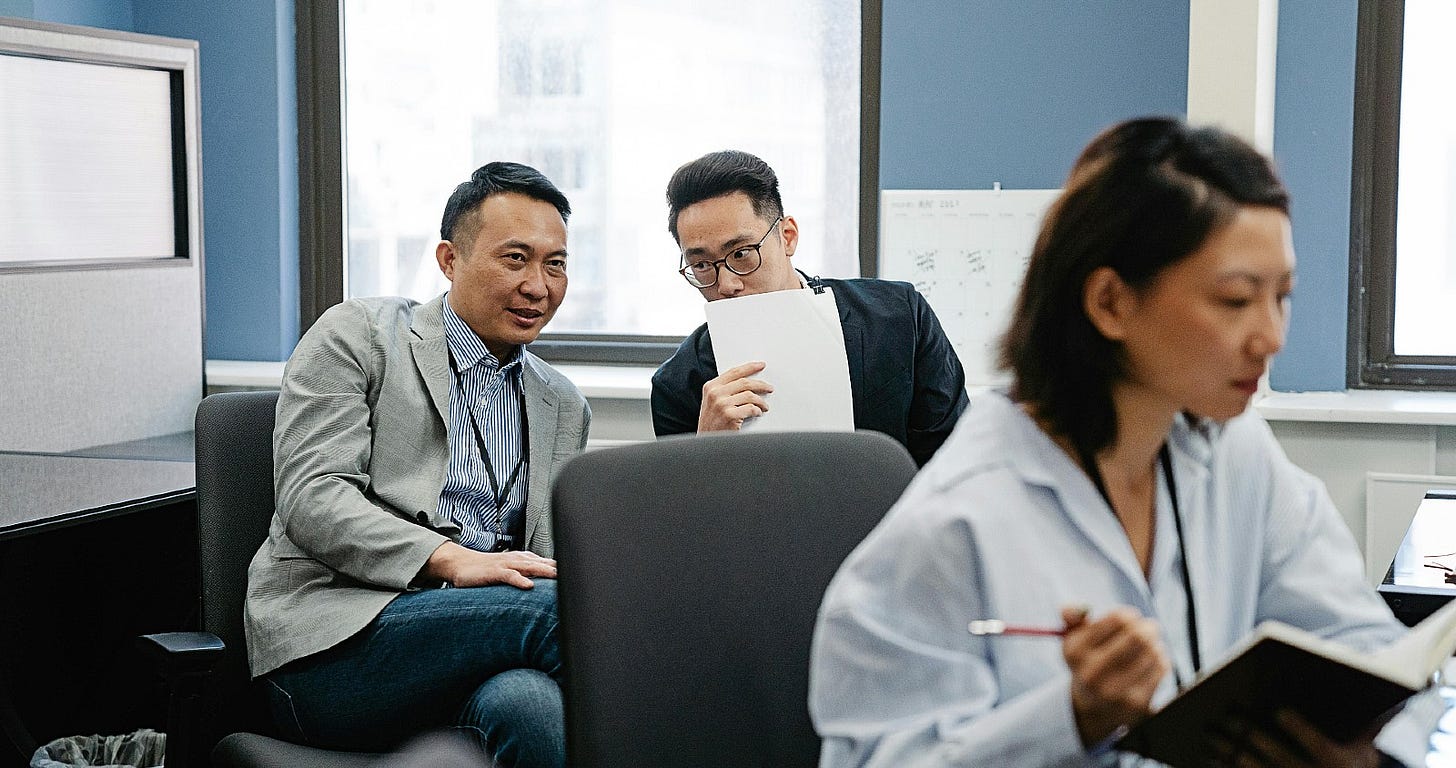
Present bias every day
Here is a personal example that might sound familiar.
Last month, I had to choose between buying a new energy-efficient refrigerator or a cheaper model. The efficient one would save money and reduce emissions over time, but cost more upfront.
Despite knowing the math, I still felt that pull toward the cheaper option. Present bias in action.
This mental tug-of-war plays out everywhere in modern life:
Studying now vs. watching one more TikTok video
Building emergency savings vs. buying concert tickets
Taking climate action vs. maintaining comfortable habits
Prioritizing legacy planning vs. avoiding difficult conversations
Installing solar panels vs. keeping lower upfront costs
Contributing to community projects vs. maintaining the status quo
But the impact goes far beyond personal choices. Present bias shapes our collective response to environmental challenges:
Companies choose quarterly profits over sustainable practices
Politicians prioritize short-term popularity over long-term policy
Communities delay infrastructure upgrades until crisis hits
The result? A world where we're all rationally choosing immediate benefits while creating cumulative long-term costs. It's like we're all standing in a slowly flooding room, deciding whether to fix the leak or just move to higher ground—while ordering another coffee we don't need.
What makes this particularly challenging is that unlike our ancestors, our decisions don't just affect our immediate survival. They ripple out across time and space, affecting future generations and distant ecosystems in ways our savanna brains weren't designed to grasp.
The good news?
Once we understand this bias, we can develop tools to work with (or around) it. That's where mindful scepticism comes in...
We have Paleolithic emotions, medieval institutions, and godlike technology.
E.O. Wilson
Outsmarting Your Inner Instant Gratification
A mindful sceptic has a few options to overcome present bias.
Start with metacognition—sounds fancy, but it's simply thinking about your thinking. Next time you're reaching for your phone during study time or considering another slice of cake, pause. Ask yourself: "Am I choosing this because it's truly best for me, or am I just craving that quick hit of dopamine?" This simple pause can transform an unconscious habit into a conscious choice.
Want to make future consequences feel more real? Try mental time travel. Instead of seeing your future self as a stranger, make them your closest friend. When you're tempted to skip your evening walk, vividly imagine how next-month-you will feel if you've built a consistent exercise habit. Feel the energy in your body, the spring in your step, the clarity in your mind. Your brain might be stuck in the savanna, but your imagination can bridge the gap between now and later.
You can also trick your present-focused brain by setting up what behavioral economists call ‘pre-commitments’. Think of these as friendly barriers between you and impulsive choices. Maybe it's scheduling automatic transfers to your savings account the day your salary arrives (before you can spend it on that shiny new gadget). Or perhaps it's preparing healthy snacks in visible, easy-to-grab containers while hiding the chocolate in the back of the highest cupboard. You're essentially becoming your own choice architect.
But here's the crucial part—don't turn this into another reason for self-judgment. Your tendency to prioritize the present isn't a character flaw; it's an evolutionary feature that helped your ancestors survive. When (not if) you find yourself succumbing to present bias, treat it with curiosity rather than criticism. Each time you notice it happening is another data point in your personal research project on human nature.
Consider building your own support system too. Share your long-term goals with friends who share your values. Join communities (like this one!) where people understand the challenge of balancing present actions with future consequences. Sometimes, knowing others are wrestling with the same cognitive quirks makes it easier to work with them rather than against them.
Remember, you're not trying to eliminate your present bias—that would be like trying to eliminate your need for food or sleep. Instead, you're developing a more nuanced relationship with it. You're learning to dance with your savanna brain rather than fighting it, all while gradually expanding your circle of concern beyond the immediate horizon.
Think of it this way…
Your ancestor's survival depended on intense focus on the present.
Your survival—and that of future generations—depends on your ability to imagine and act for a future you can't yet see. It's quite a promotion from your ancestor's job description, isn't it?
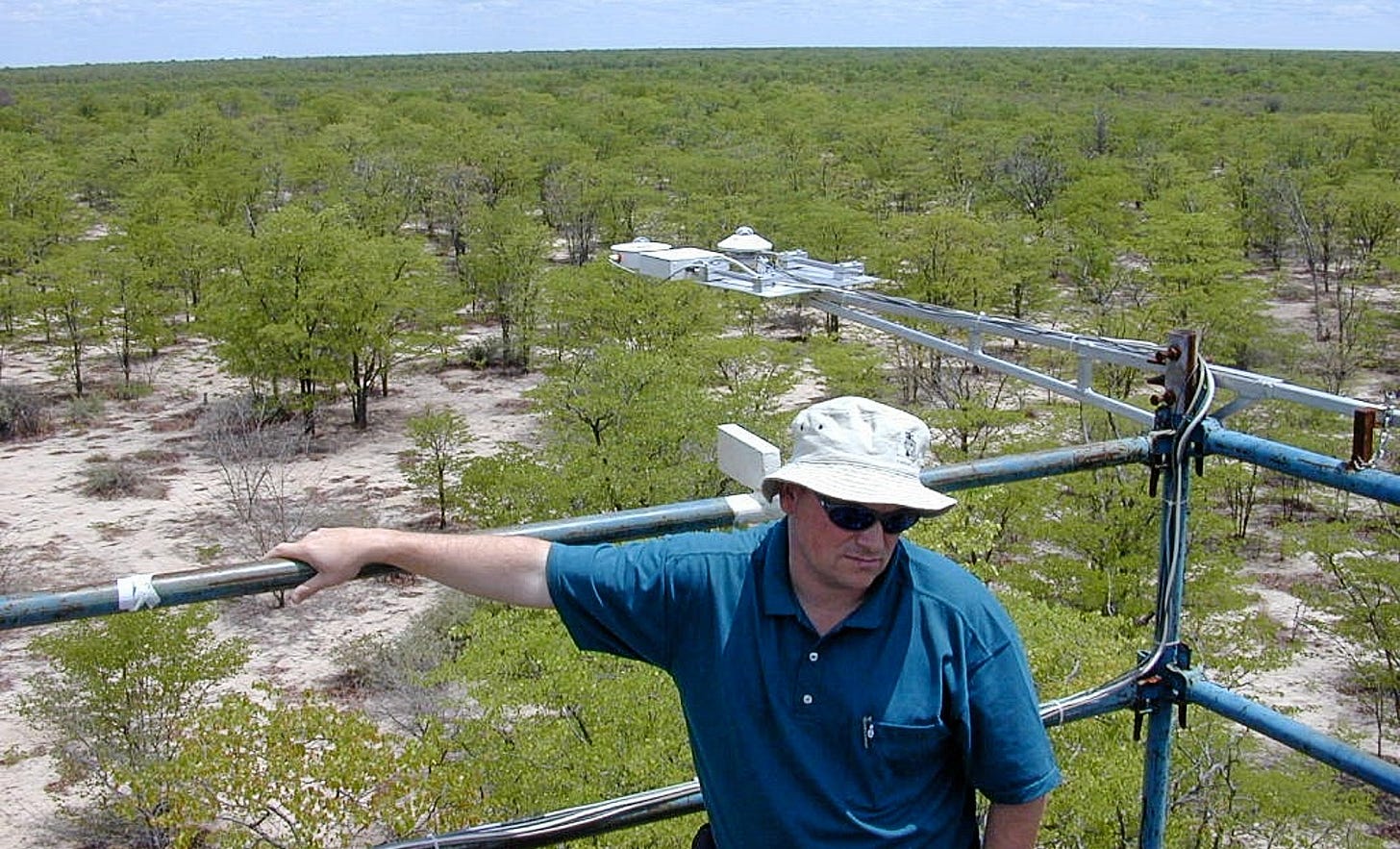
Daydreamers died of thirst back in the day.
Ironically, today, daydreamers are the only way to stop kicking the cans and tackle the many issues that threaten human survival. We must start thinking slowly, logically, imaginatively and outside our innate tendency to worry only about today.
It’s not what mindfulness tells us, but breaking paradigms is the core of scepticism, and behavioural discount rates, real or not, need to be overcome if humanity is to shift from the impossibility of sustainability to the focus on survival.
Just like we did on the savanna.
Key Points
Our "savanna brain" evolved to prioritise immediate rewards for survival, creating a present bias that still influences our decision-making today. While this bias was crucial for our ancestors' survival, it can now hinder our ability to address long-term challenges.
Present bias manifests in personal choices (entertainment over education) and collective decisions (prioritising quarterly profits over sustainable practices). This cognitive pattern helps explain why we struggle with issues requiring long-term thinking, from personal health to climate action.
Research shows that we consistently undervalue future benefits in favour of immediate rewards—from preferring chocolate today while planning to eat fruit tomorrow to delaying infrastructure upgrades until a crisis hits. This isn't a character flaw but an evolutionary feature needing conscious management.
Mindful scepticism offers practical tools to work with (rather than against) our present bias, including metacognition, mental time travel, and pre-commitments. The goal isn't to eliminate this evolutionary trait but to develop a more nuanced relationship with it, helping us balance immediate needs with future consequences
You Might Also Like
In the next Issue
Next week I'll share with you what happened when I revisited the 60 years of precise CO2 measurements and mapped them against every significant climate agreement since Rio.
The data tells an uncomfortable story about promises versus reality. It challenges everything we think we know about global climate action.
Join me for a journey through the most important measurements in environmental history.
Behind every piece of mindful scepticism are countless hours of research, fact-checking, and wrestling with complex evidence.
I'm grateful if these insights sparked your curiosity, challenged an assumption, or made you think differently about an environmental issue.
Your support keeps me caffeinated for the next attempt to upend humanity's predicament.



